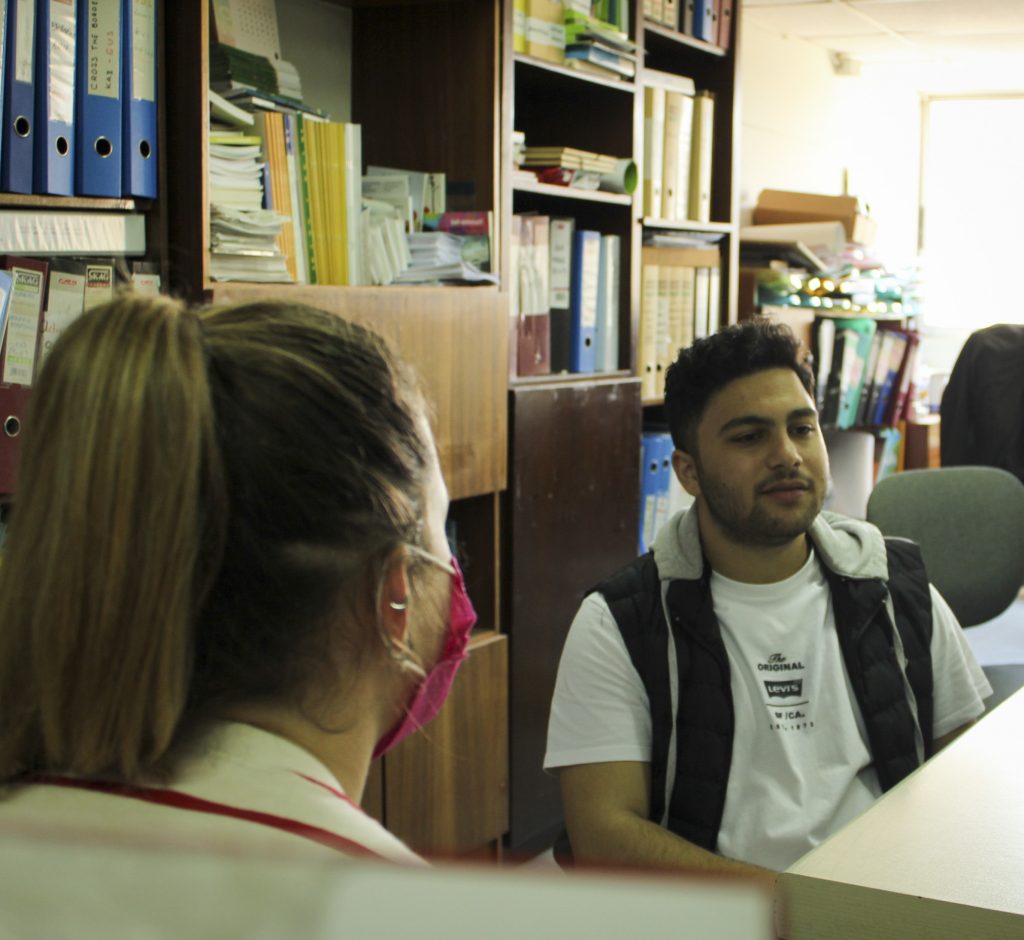Even though Roma people are often seen in Greece, their culture is invisible to many. Stavros Sagkou (19) is a young Thessaloniki-born Roma man. He studies economy and loves theatre. His idol is the famed comedian Charlie Chaplin, who was also a Roma.
Stavrous works with ‘The Lighthouse Of The World’, an NGO that helps Roma people to break free from the ghetto.The organisation teaches children about robotics and astronomy, increases literacy rates and actively seeks to include Roma children in social situations.
Pass down knowledge
By educating the Roma, they can pass down knowledge to the younger generations in order to increase their chances of escaping poverty. ‘The Lighthouse Of The World’ has been an active part of Roma integration for the past 18 years. Back when they started, over 80 percent of Roma children in Greece didn’t go to school. Now, that number has been lowered to 15 percent due to the combined efforts of similar NGOs.
No work
Tensions between Roma and Greeks increased a lot after the economic crisis of 2009, which hit Greece disproportionally hard. As the unemployment rate for Greeks grew to over 30 percent, those rates flew up to a staggering 60 percent for Romanis.
Today the Greek economy may have recovered a bit, but the large majority of Roma still live in extreme poverty. There are about 351 Roma settlements in Greece. Some of them have no access to running water or central heating as they live in tents.

Speaking to him at the headquarters of the organization, a colorful and vibrant office near Thessaloniki’s city centre. Stavros considers himself lucky, as he is one of the few of his people to have had the opportunity to get an education. His greatest wish is to give other Roma children the same knowledge he has gained over the years: “I was very lucky because all students and teachers were very kind to me and helped me to not feel excluded. They made me who I am today.”
Used to harassment
He did fall victim to discrimination against Roma though, as he recalls a certain incident: “In fifth grade, I was at a bus station with my friend who was talking about Greek music. A boy from another school came over and said that we weren’t allowed to talk about Greek music because he claimed that Romanis are dirty and not accepted in ‘their’ society.” Despite having to get used to these xenophobic remarks, Stavros still feels at home in Thessaloniki.
The Greek government claims that Greece houses about 100,000 Roma, while the United Nations estimates lie much higher, at around 260,000 individuals.
Dangerous neighborhoods
Even though he has lived his entire life in Greece, he hasn’t forsaken his Roma culture, which is old and has many traditions. To protect those traditions, Roma people live in communities with large families of over eight members: “People used to think that our neighborhoods are dangerous, because we live away from the majority of the local population. However, within our communities we have a lot of friendly relations and support.”

Roma pride
Poverty isn’t able to chip away at the Roma’s pride in their customs and traditions, though. They feel especially proud of their skills with instruments such as the violon and the cimbalom, as well as many different brass instruments. Roma musicians play romantic songs about love, but also somber songs about loss.
“Many people have no idea that Roma music is the basis for many forms of art in other cultures, especially the Greek one”, Stavros adds, “For example, the tsifteteli dance and the clarinet have their roots in Romani culture.
Equal members of Greece
Stavros finalizes: “I love teaching to kids, and in ten years I still see myself with ‘The Lighthouse Of The World’ participating in social work. I will always help to improve my community and get younger generations into school so that Romanis will become equal members of Greece.”
Made by:
Boris Sajaia
Ela Seremet
Ezra Cnaepkens
Irinola Tlashadze
Ralph Hulsman
Marianthi Variozou
Lamprini Trougkou
Coach:
Douwe Schaaf
Special thanks to Antigone and Aristotle University of Thessaloniki.


